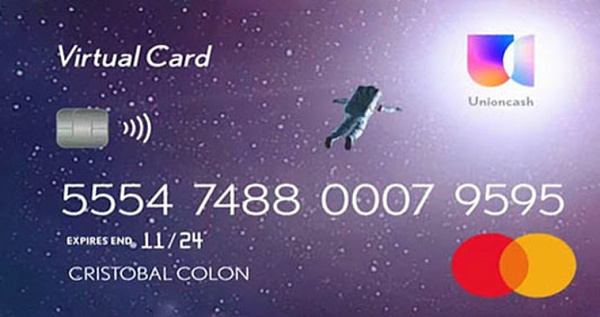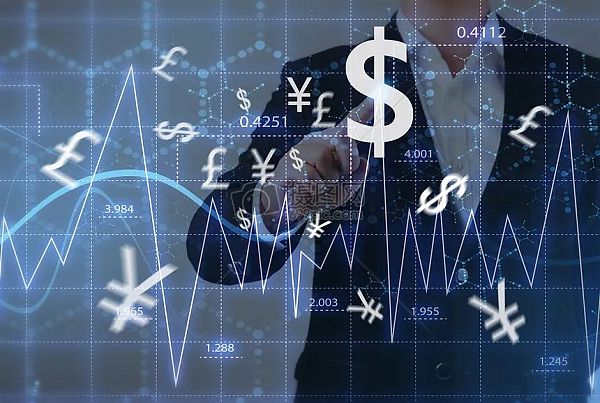Introduction
Recently, the card freeze law caused by the realization of USDT into RMB The problem is becoming more and more frequent, and some players in the currency circle have begun to consider using the MasterCard U card to withdraw cash to avoid the problem of bank cards being frozen. However, although this method solves the problem of withdrawing money, it has caused new concerns: MasterCard U Card can be recharged with virtual currency and spent at domestic merchants. Is this model legal in China? What are the specific legal risks? This article will specifically analyze whether the relevant behavior is suspected of "illegal currency exchange" from three perspectives: "MasterCard U Card issuer (such as Paytend Digital Bank), promoters in China, and users in China" risks and provide relevant persons with some legal compliance advice.

Part 1. Model of domesticpayment using MasterCard U Card strong>
Many people are curious: What is the specific operating model of using MasterCard U Card to open up domestic payment scenarios? In fact, the nature of the MasterCard U Card is similar to an overseas bank card that can be recharged with virtual currency and used domestically. This may be unfamiliar to everyone. Let’s give an example: MasterCard is equivalent to our domestic UnionPay. They are both Bank card organizations, however, UnionPay is domestic and MasterCard is international; Paytend, the issuer of "MasterCard U Card", is equivalent to a commercial bank under the UnionPay system, such as Agricultural Bank of China; and the Unioncash MasterCard launched by Paytend is also It is what everyone calls the "MasterCard U Card", which is equivalent to a "co-branded card" launched by the Agricultural Bank of China. Its feature is that it supports virtual currency storage. MasterCard U Card supports the deposit of USDT, BTC, ETH and other cryptocurrencies, and you can withdraw cash from all bank ATMs that support MasterCard. Then, the most amazing thing is: this MasterCard U card can complete consumer payments in China just like other international bank cards with VISA and MASTER payment functions. In other words: You can use U-Card as a payment tool by binding domestic mobile apps such as Alipay, WeChat, Meituan, and Ele.me. Just like Alipay selects a payment channel and a certain bank card, you can also select the payment method as "MasterCard U Card" when paying.
At this time, some people will have questions: If my U card is recharged with virtual currency, then I use the U card to complete the payment, such as Alipay. Did the app platform receive virtual coins? Or when I bought something in China, did the domestic merchants receive virtual coins? In fact, neither Alipay nor domestic merchants have received virtual coins. What they charge is still the legal currency of RMB. The logic is: U-card users recharge with virtual currency, and the card operator has already settled the virtual currency into foreign currency at its own stage. After that, users using the MasterCard U Card to make purchases in the country are the same as using ordinary bank cards with the MasterCard international payment function: due to the existence of formal international settlement agreements, domestic merchants actually receive RMB. This link does not involve virtual currency.

Part 2. MasterCard U Card Issuer or Issuer Legal risks of cooperative institutions
In previous public account articles published by our team, we have analyzed in detail many illegal exchanges Relevant laws and regulations on foreign exchange and overseas jurisdictions. We believe that for MasterCard U Card issuers or issuer partner institutions (hereinafter referred to as "U Card issuers"):
(1) , objective level
Since most countries other than China are not foreign exchange control countries, the "USDT and other virtual currencies" of overseas U-card issuers -Foreign Currency" basically does not constitute an illegal crime overseas. Therefore, considering that the subsequent "Foreign Currency-RMB" link is also endorsed by MasterCard's International Settlement Agreement, the issuer seems to be in my country. It is difficult to have legal risks. However, it should be noted that our country's criminal law does not evaluate whether an act is a crime in separate sections, but as a whole. If these two acts are deemed by the case-handling agency to be a single act, there is a risk of being held criminally responsible. In the model of Chinese users using U cards: if the USDT that overseas Chinese users of U cards recharge into the U card is converted into RMB, then the issuer is equivalent to objectively realizing "using virtual currency as the medium to complete the exchange of RMB and "Exchange between foreign currencies", the case-handling agency may consider the previous legal behavior and the overall illegal currency exchange behavior to be related to the relationship between means and ends. At this time, virtual currency is equivalent to being used as a cover to circumvent my country's foreign exchange supervision. This model essentially violates the legal rights protected by the crime of illegal business operations and is a "disguised purchase and sale of foreign exchange."
This is like: Engaging in a "money exchange" or "conversion shop" overseas that does not touch RMB, operating foreign currency exchange, The business of exchanging foreign currency against USDT depends solely on the business itself. For example, in Hong Kong, if you obtain a money exchange license from the customs and pay taxes legally in Hong Kong, there seems to be no legal problem. But if: There are a large number of mainland Chinese users who are looking for a "money exchange" to exchange U, and if the mainland users obtain U in exchange for RMB, there may be certain legal risks, that is, they may encounter mainland laws. of high-voltage lines.
(2), subjective level
After reading the objective At the other level, let’s look at the subjective level: Is the U-card issuer “knowingly” that “USDT is converted into RMB by Chinese users” in the “USDT and other virtual currencies-foreign currencies” link? If it is "knowingly", then the U-card issuer has the risk of triggering domestic foreign exchange control regulations, thereby constituting disguised buying and selling of foreign exchange, and constituting the illegal business crime of "illegal exchange of foreign exchange." As for how to determine this "knowledge", it is necessary to comprehensively consider multiple factors such as the extent of the issuer's participation in the U source, the specific circumstances of the case, and whether the fees charged by the issuer are reasonable.
If it can be proven in the end that the overseas U-card issuer is "knowingly" that the USDT that Chinese users recharge into the U-card is converted into RMB, then this It is the realization of "using virtual currency as a medium to complete the exchange between RMB and foreign currencies", which is equivalent to "disguised buying and selling of foreign exchange". According to Article 2 of the "Interpretations of the Supreme People's Court and the Supreme People's Procuratorate on Several Issues Applicable to Laws in Handling Criminal Cases of Illegal Engagement in Fund Payment and Settlement Business and Illegal Trading of Foreign Exchange" (hereinafter referred to as the "Interpretation"): "In violation of national regulations, the practice of buying and selling foreign exchange or disguised foreign exchange If the illegal trading of foreign exchange, such as buying and selling foreign exchange, disrupts the order of the financial market and the circumstances are serious, he shall be convicted and punished for the crime of illegal business operations in accordance with the provisions of Article 225, Paragraph 4 of the Criminal Law." Combined with the provisions of Article 3 of the Interpretation, To determine the circumstances, once the amount of illegal business operations exceeds 5 million yuan, or the amount of illegal income exceeds 100,000 yuan, it is considered a "serious circumstance." In other words, when the above-mentioned "serious circumstances" standard is met, the U-card issuer may become the principal offender of illegal business crimes.
(3) Jurisdictional issues
However, there are A regulation on jurisdiction has blocked the legal risks of these overseas companies in my country: since the first-tier sentence standard for illegal business crimes is "fixed-term imprisonment of less than five years or criminal detention", it does not meet the "minimum sentence of more than three years of fixed-term imprisonment or criminal detention". "Prison sentence" does not apply to the protective jurisdiction of Article 8 of the "Criminal Law of the People's Republic of China": "Foreigners who commit crimes outside the territory of the People's Republic of China against the state or citizens of the People's Republic of China, if the minimum penalty prescribed in this law is fixed-term imprisonment of more than three years , this law can be applied, except for those who are not punished according to the law of the place where the crime was committed."
Therefore, according to the principle of "protective jurisdiction" in our country's criminal law, U card The issuer's "USDT and other virtual currencies - foreign currencies" may not be held accountable under our criminal law system; however, our country's criminal law also has "personal jurisdiction"/"territorial jurisdiction", which means that if It is a person with Chinese nationality who engages in the activities of "USDT and other virtual currencies-foreign currencies" issued by the U-card issuer, or engages in the activities of "USDT and other virtual currencies-foreign currencies" within the territory of China, including territorial waters or airspace, the "Criminal Law" in our territory It's still manageable.
Then someone must have said that if the issuer is not a Chinese national and does not engage in the activities of "USDT and other virtual currencies-foreign currencies" in China, is it legal under Chinese law? Just can’t control it? From a law enforcement perspective, this is really the case. However, we believe that this is a bug in our current legislative system. Think about it: Is it possible that our country cannot control foreigners who defraud Chinese people through overseas phone calls because the statutory minimum sentence for some crimes is less than three years? Yet? Wouldn't this lead to a large outflow of ethnic funds, but our case handling units have nothing to do about it. Therefore, considering such a bug, I believe that the relevant departments will definitely issue relevant laws, regulations or judicial interpretations in the future to specifically punish this behavior. Regulation.

Part 3. Legal risks associated with promoting and using U-cards within the country
(1) Promoters in China
Since it is difficult To hold the U-Card issuer accountable, will there be any legal risks arising from promoting MasterCard within the country?
We believe that if we really think about this issue, "disguised buying and selling of foreign exchange" constitutes the crime of supporting illegal business operations and cannot be escaped. For example, the first step of the Unioncash Mastercard launched by Paytend is to convert the depositor's U into US dollars, and then complete legal cross-border payments in accordance with MASTER's international payment agreement. This latter step is indeed legal and compliant, and there is no legal risk; however, in the previous step of "converting U into U.S. dollars", if a large amount of U is exchanged for RMB by Chinese users, then, starting from the "accomplice theory", giving U cards Those who are promoted by the issuer to these Chinese users are likely to be considered by the case-handling agency as "knowingly knowing and participating" in the behavior of "Chinese users exchanging RMB for U-U top-up and entering the MasterCard U-U Card operator to exchange for other foreign currencies", and the behavior is "knowing and participating" in China. The promoters are also part of the whole behavior, then this is the purpose of helping others indirectly realize the exchange of RMB and foreign currencies and buy and sell foreign exchange. Once the case-handling agency has evidence to prove that the promoter is subjectively aware of this situation, or should be aware of it, and the amount of business exceeds 5 million yuan, according to domestic laws, it will be "illegal trading of foreign exchange" and "illegal trading of foreign exchange". If the circumstances are serious, the promoter will be an accomplice to the crime of illegal business operations.
(2) Users in China
Of course, there are still certain thresholds and risks if you want to promote and sell MasterCard U Card domestically. Compared with the legal risks of promoting MasterCard U Card in China, the question that most people may be more concerned about is: Will my personal behavior of simply using MasterCard U Card in China create legal risks? This situation is like: you find someone to exchange USDT into U.S. dollars, and then find someone to exchange the U.S. dollars into RMB and spend it within the country. Obviously, if we look at these processes together, we should not be able to escape being identified as "illegal currency exchange". However, illegal currency exchange is only for personal use and does not belong to business activities for profit. It is only an administrative violation. Behavior. Once the use of MasterCard U Card in the country is discovered, domestic users will face administrative fines.
Specifically, this is "illegal entry of funds". According to the provisions of Article 41, paragraph 1, of my country's "Foreign Exchange Administration Regulations": Violation of regulations will result in If foreign exchange is remitted into the country, the foreign exchange management authority shall order it to make corrections and impose a fine of not more than 30% of the illegal amount; if the circumstances are serious, a fine of not less than 30% of the illegal amount but not more than the equivalent amount shall be imposed. For example: If Mr. Wang recharges USDT equivalent to 10,000 RMB in value into his MasterCard U-Card, and then uses this U-Card to spend 10,000 RMB in China. Once this behavior is discovered, Wang will be fined less than 3,000 yuan. If it involves multiple illegal currency exchanges or huge amounts of currency exchange, the administrative agency may consider Wang to be a "serious case" and impose a fine of up to 3,000 yuan. A fine of more than 30% of the total amount will be imposed, but the fine will not exceed the amount of his illegal currency exchange itself.
 JinseFinance
JinseFinance
 JinseFinance
JinseFinance JinseFinance
JinseFinance Kikyo
Kikyo JinseFinance
JinseFinance JinseFinance
JinseFinance JinseFinance
JinseFinance JinseFinance
JinseFinance JinseFinance
JinseFinance Davin
Davin Cointelegraph
Cointelegraph